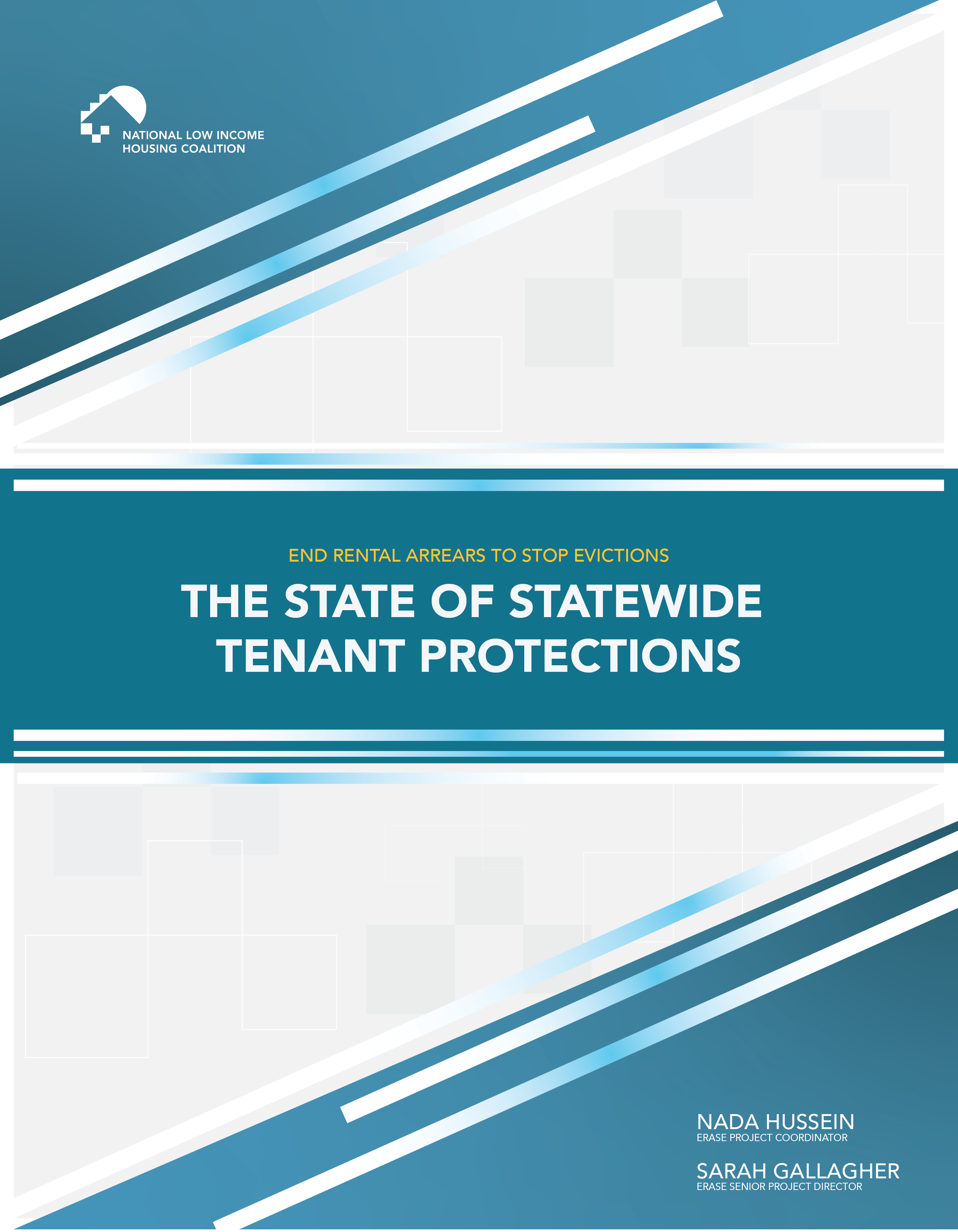NLIHC Releases New Brief on State-Level Tenant Protections Enacted Since Pandemic
May 25, 2023
NLIHC released today a brief highlighting the efforts of state-level lawmakers to pass tenant protections that keep renters stably housed and prevent unjust discrimination and harassment. The brief, “The State of Statewide Protections,” provides in-depth summaries of common tenant protections, details the challenges faced by lawmakers enacting protections, and offers recommendations for developing and implementing laws aiming to protect renters over the long term.
Tenant protections are laws and policies meant to ensure that renter households are able to maintain safe, affordable, and accessible housing and live free from the threat of eviction. Though many types of protections exist, the brief focuses on five protections that aim to divert evictions: (1) the civil right to counsel; (2) measures prohibiting source-of-income discrimination; (3) eviction record sealing and expungement legislation; (4) rent stabilization and anti-rent gouging legislation; and (5) “just cause” eviction laws.
Since the pandemic began, state governments have shown a growing interest in implementing such eviction diversion measures, especially given the lack of federal laws protecting renters. In particular, the brief shows that:
- Twenty-one states have passed measures prohibiting source-of-income discrimination, which guarantee that individuals who utilize public assistance, such as Section 8 housing choice vouchers, will not be denied housing simply because of their source of income or the way they pay for housing.
- Ten states have passed eviction record sealing and expungement legislation, which ensures that renters who have an eviction filing present on their public record will not be denied housing by a prospective landlord because of their eviction history.
- Three states have passed rent stabilization and anti-rent gouging legislation, which guarantees that tenants will not face excessive rental increases during their tenancy.
- Six states have passed “just cause” eviction laws, which limit the grounds on which landlords can evict tenants to “just” or “good” reasons, such as nonpayment of rent or violation of a lease term agreement.
- Three states – Washington, Maryland, and Connecticut – have implemented right-to-counsel protections, which provide legal guarantees that tenants facing the threat of eviction are able to access legal representation in court.
In addition to overviewing newly enacted measures, the brief makes recommendations for policymakers and others who are seeking to implement renter protections. The brief urges lawmakers to continue passing tenant protections addressing all stages of the eviction process, for example, and urges them to continually evaluate the efficacy of existing protections to ensure adequate funding and enforcement. The brief also recommends that policymakers engage tenants throughout the process of formulating and instituting protections and that state governments refrain from passing preemption laws that prevent localities from enacting legislation to protect renters in their own communities.
Read the brief here.
